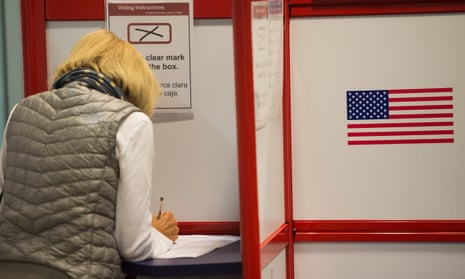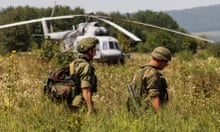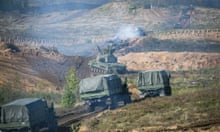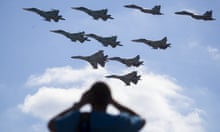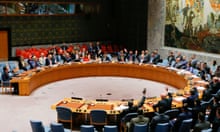Russia is welcome to send observers to the US presidential election, even if the requests smack of a propaganda stunt, the state department has said.
Moscow has been accused of trying to undermine the race through cyber attacks against US political targets, and its observers complain they were refused accreditation.
But on Friday the state department spokesman, John Kirby, said there was no policy to refuse Russian observers.
Kirby noted that Russian officials were offered places on a team being fielded by the Organisation for Security and Cooperation in Europe (OSCE), which monitors elections in all its member states, including the United States.
“We told the Russian government that they were welcome to observe our elections,” he said.
“The fact that they have chosen to not join the OSCE observation mission makes clear that this issue is nothing more than a PR stunt.”
Russian observers could also apply directly to individual US states for accreditation, Kirby said, adding that Washington would not stand in their way.
“There’s nothing for us to fear from having Russian observers observing our election,” he told reporters.
“We’re very confident in the stability, the security and the strength of our electoral process. There’s no need to hide from that.”
On Thursday, the Russian newspaper Izvestia reported that Russia had chosen not to join the OSCE observer mission.
Instead, it said, Russian observers had applied directly to US states for accreditation and had been refused.
A Russian electoral official, cited by the paper, accused the state department of blocking the observers because of its “Russophobic tendencies.”
But Kirby said he was not aware that any advice had been given to individual US states about foreign observers.
Oklahoma voting officials have denied a request from the Russian consulate in Houston to monitor elections in that state, saying foreign delegates were not allowed into polling stations, an official said on Friday.
The consul general made similar requests to officials in Texas and Louisiana, local news reports said, and was rebuffed in both states. The consulate general of the Russian Federation in Houston was not immediately available for comment.
The consulate asked to have personnel in Oklahoma to study the presidential election and was told that state law forbids anyone other than election officials and voters into areas where votes are being cast, said Bryan Dean, spokesman for the Oklahoma State Election Board.
In a letter provided by Oklahoma, Russian consul general Alexander Zakharov asks to have a consulate officer “at one of the ballot stations of Oklahoma with the goal of studying the U.S. experience in organization of [the] voting process”.
The Oklahoma secretary of state, Chris Benge, said he hoped the Russian officials could watch the US election process on TV.
“It is truly an amazing system,” he wrote back in a letter provided by the state.
US intelligence officials have concluded that the Russian government was conducting or orchestrating cyber attacks against the Democratic National Committee and the Democratic congressional campaign committee, possibly to disrupt or discredit the election.
A Kremlin spokesman has called the U.S. allegations “nonsense,” the Interfax news agency reported.
Agence France-Press and Reuters contributed to this report.
